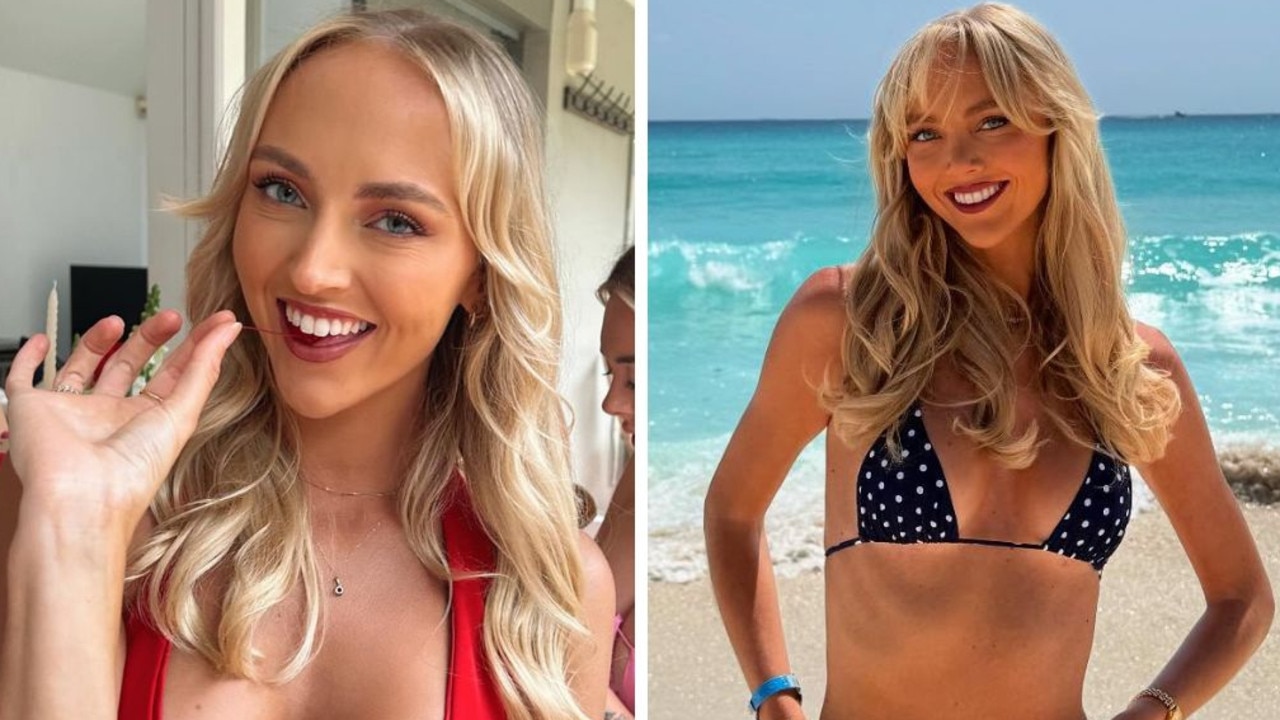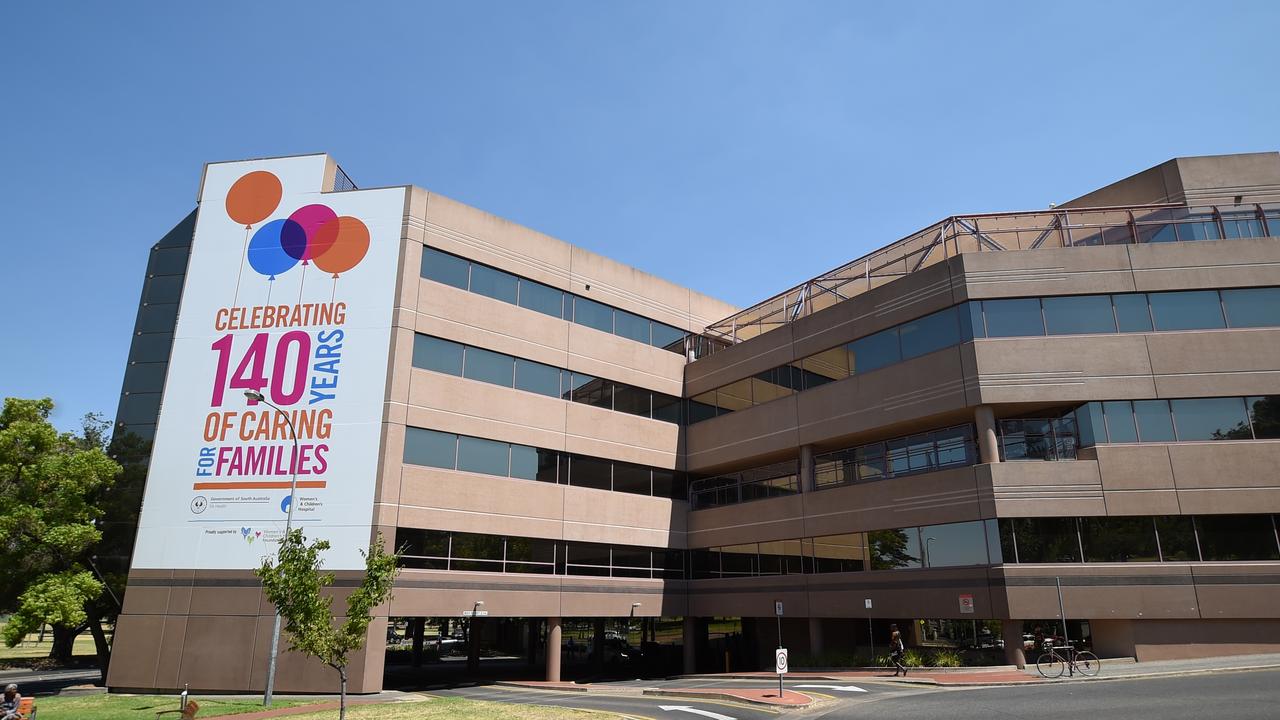Chinese vapes heading for Australia in new challenge to Mark Butler’s import ban
Australia’s ban on imports of disposal vapes isn’t going to stop Chinese manufacturers who are preparing for orders to be delivered in the coming weeks.
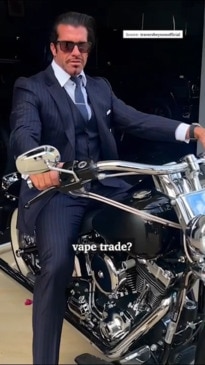
Health
Don't miss out on the headlines from Health. Followed categories will be added to My News.
Chinese manufacturers are still prepared to ship disposable vapes to Australia, despite a ban on their import that came into force on New Year’s Day.
A sales representative at popular Chinese brand iPlay told an individual identifying themselves as an Australian vape shop owner that orders placed last week were “expected to be delivered in early February”.
The company’s Ghost vapes are good for 9000 puffs, come in “tantalising flavours” including “Arctic Mint” and “Pina Colada”, and contain 5 per cent nicotine, according to its website.
However, iPlay also advertises “nicotine-free” versions of some of its vapes.
Confusion over which vapes do and don’t contain nicotine has, until recently, been a major factor hindering authorities in stemming the $1bn-plus worth tide of vapes flooding Australia every year.
The vast sums on the line bring high stakes to an intense debate over whether or not Health Minister Mark Butler’s blanket ban on bringing in disposable vapes will work.
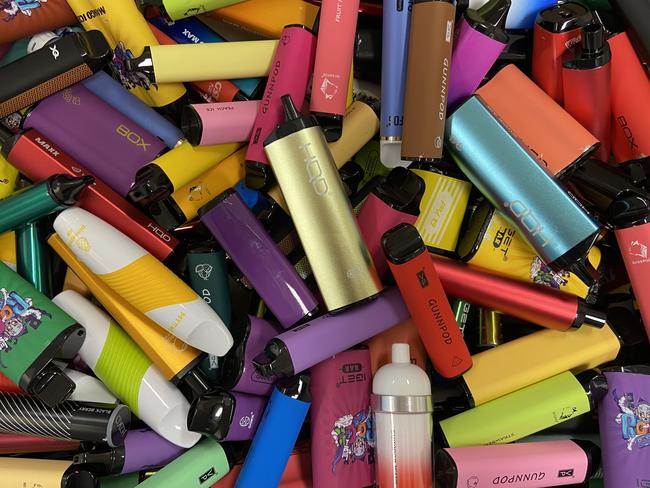
Previously, disposable vapes could be imported as long as they did not contain nicotine.
Further measures including cigarette-style plain packaging and barring flavours that appeal to kids are coming in March.
Last weekend, the Federal Government stepped up its battle against vapes, adding an additional $188m to a law enforcement war chest.
Mr Butler said disposable vapes were “targeted specifically to get children hooked on nicotine”.
“The only groups who want to regulate and sell vaping products are those who profit once kids get hooked on nicotine – Big Tobacco and tobacco retailers.”
Tobacco control expert Prof Simon Chapman said traditional tobacco giants would love to freely sell vapes in Australia like they can in the US and UK, but the laws make it too difficult.
“What you’re seeing at the moment is overwhelmingly products coming from China,” he said.
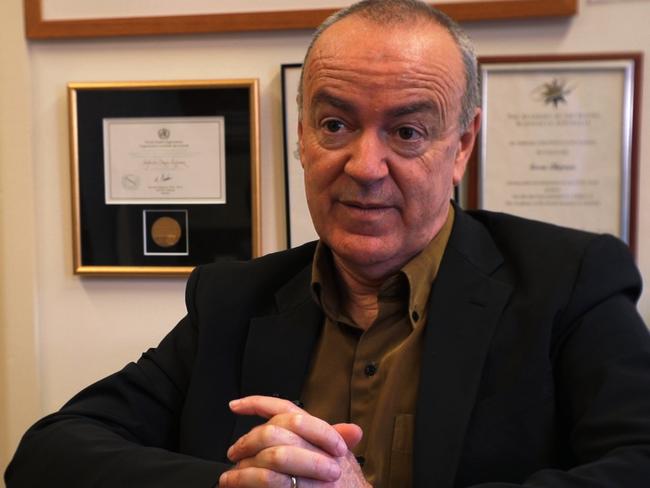
Dr Chapman supports the Albanese government’s crackdown on vapes, pointing to the uncertainty over the health effects of prolonged vaping and the deterrent effect of large fines.
He said manufacturers put flavours in vapes because otherwise “they would taste so s**thouse”, but the health effects of inhaling the chemicals was unknown.
Dr Chapman is publicly opposed by Dr Colin Mendelsohn, a GP who says prohibition is a failed strategy and wants vapes sold to over-18s in licensed shops to help people get off cigarettes.
“It’s silly to criticise a regulated market based on what’s happening now,” he said.
Dr Mendelsohn confirmed he personally had received no money from tobacco or e-cigarette companies and attacked a “dirty tricks campaign to undermine and smear” him through his former organisation, the Australian Tobacco Harm Reduction Association, which he said received start-up funding from e-cigarette companies.
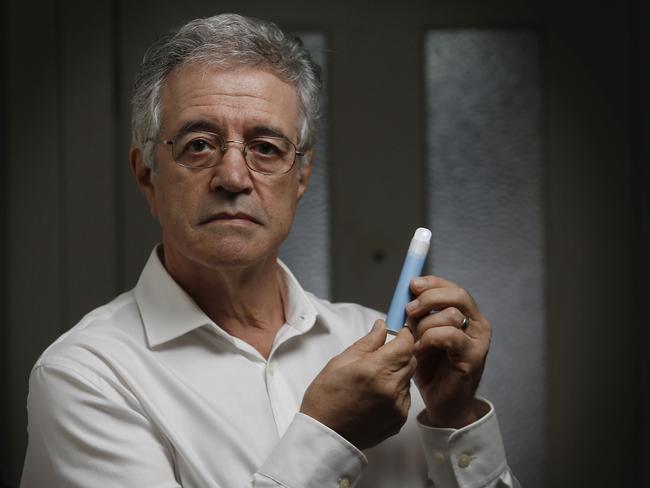
The world’s two biggest tobacco companies, British American Tobacco and Philip Morris, are upfront about their desire to legally sell vapes and use Canberra lobbyists to argue their case.
Philip Morris already sells an e-cigarette available legally with a doctor’s prescription.
Meanwhile, Liber Pharmaceuticals, which sells a legal vape pen through pharmacies, is backed by the gigantic Chemists Warehouse chain and a lobbying company where former health minister Richard Wooldridge is registered as a lobbyist. Dr Wooldridge declined to comment and there is no suggestion of any wrongdoing on his point.
Dr Chapman admitted the new restrictions won’t completely stamp out the problems surrounding vapes.
“But what I say to that is, a 13-year-old doesn’t know where to buy cocaine but they know exactly where to buy vapes.”
At the moment, that’s mostly at any one of the tobacconists that line Australia’s shopping streets.
And among tobacco retailers, three claim to be the biggest in Australia on one measure or another.
They are Smokemart, Freechoice and TSG, or Tobacco Station Group.
Checks last month showed all three chains sold vapes. The change in laws permits retailers to sell disposable vapes imported before January 1 and it’s not suggested that the companies have failed to comply with the new laws or have engaged in illegal conduct.
Freechoice and TSG did not answer questions.
A lawyer for Smokemart denied the company had done anything wrong, including selling illegal vapes or products targeting children.
WHO PROFITS
The $1bn-a-year trade in vapes was thrown into turmoil on New Year’s Day when the Federal Government banned the import of all disposable e-cigarettes, whether or not they contain nicotine.
Here’s the companies that have been profiting from the vape trade – and who’d like to get into it.
THE LEGITIMATE RETAILERS
TSG
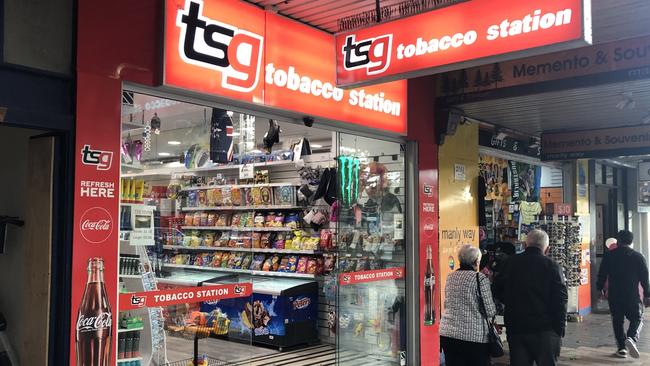
Owned and run by Rick Bayliss, Ross Williams and Simon Ritte.
With 564 stores under franchise, TSG, or Tobacco Station Group, is one of the biggest tobacco retailers in the country – but its bosses keep a low profile. All three hail from Melbourne’s outer eastern suburbs, and Ritte also runs a Hong Kong-based alcohol marketing company, Brandwerk.
FREECHOICE
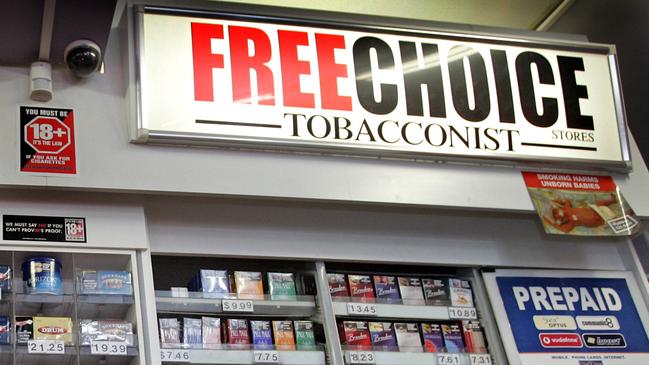
Owned and run by Travers Beynon, aka “Candyman”.
Freechoice has 304 stores, either franchised or directly owned by Beynon, a millionaire Gold Coast businessman formerly famous for a flamboyant lifestyle that included wild parties and advertising for live-in girlfriends to join him and his wife at their mansion.
He has been less visible post-pandemic, putting his 14 bedroom “Candy Shop Mansion”, with its swim-up bar and 21-car garage, on the market last month. The business turned over $214m last year and paid him a dividend of $2.1m.
SMOKEMART
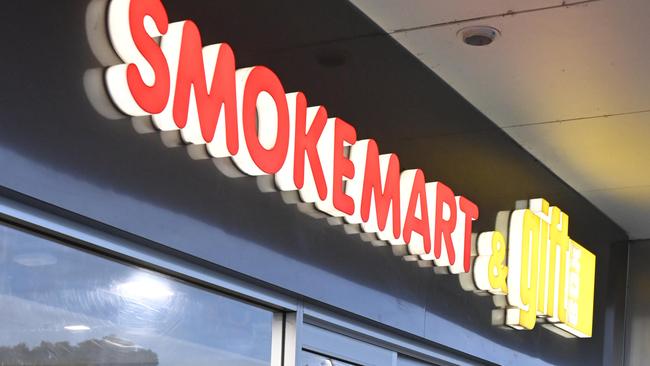
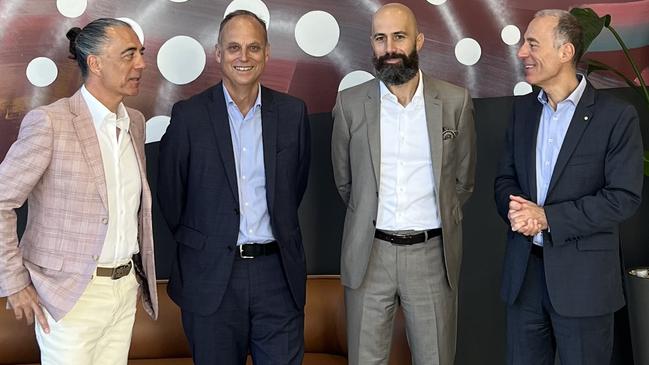
Smokemart has 120 stores and is run by Khalil (or Charlie) Shahin, Samer (Sam) Shahin and Yasser Shahin from South Australia’s billionaire Shahin family. The family also own property, South Australia’s Krispy Kreme franchise and a racetrack an hour from Adelaide. Sam Shahin is sometimes described as the state’s No.1 motorsports fan.
THE LOBBYISTS
BRITISH AMERICAN TOBACCO
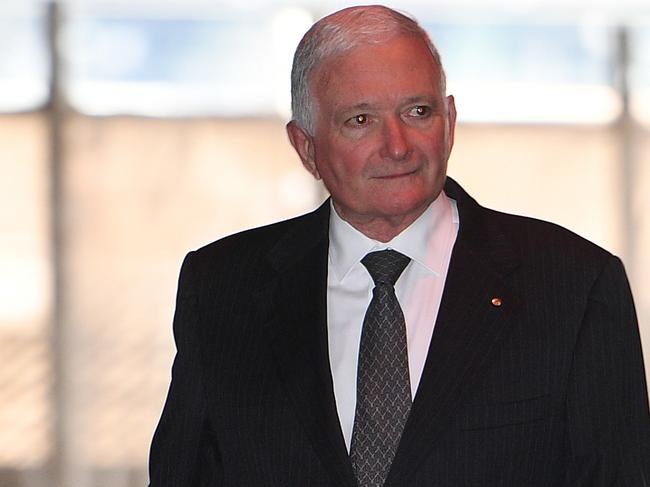
Our tough laws have locked the multinational gasper giant out of the Australian market but it makes no secret of its desire to sell vapes, saying on its website that it wants to have 50m e-cigarette customers by the end of the decade. For many years it employed former NSW premier Nick Greiner as Australian chairman.
These days, its lobbyist is John Wells, a former press secretary to John Howard and Andrew Peacock.
PHILIP MORRIS
Fellow tobacco company Philip Morris is also locked out of Australia but keen to participate, comparing the benefits of vapes to those of electric cars and energy efficient lightbubs.
Its Aussie lobbyist is Capetal Advisory, owned by Brad Green, a former adviser to Labor South Australian premier Jay Weatherill (who was tipped out of office in 2018).
It admits funding the Australian Retail Association, but the peak body canned the $250,000 sponsorship deal in 2021.
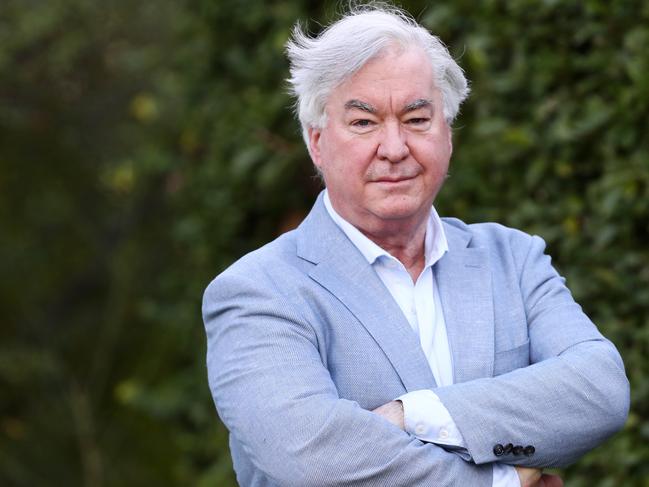
LIBER PHARMACEUTICALS
Aussie company Liber has developed a vape for sale in pharmacies.
Shareholders include Chemist Warehouse and a lobbying firm associated with former health minister Michael Wooldridge, The Strategic Counsel, which owns a stake worth $1.2m.
Wooldridge isn’t a shareholder in the lobbying firm and stopped being a director of it in 2019.


